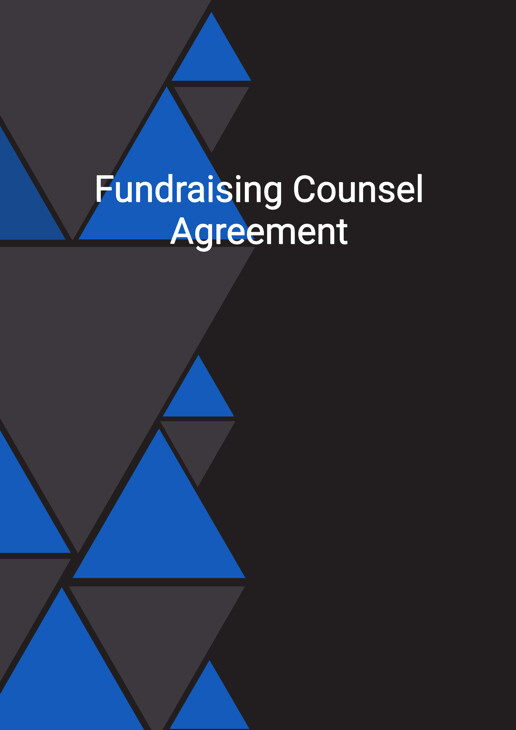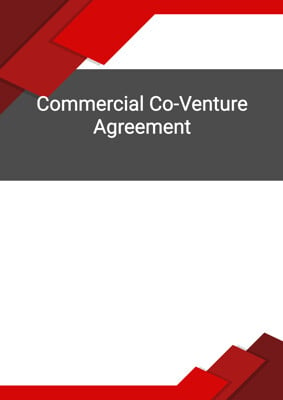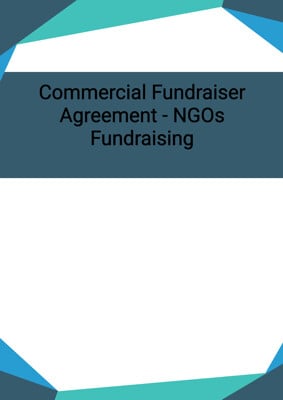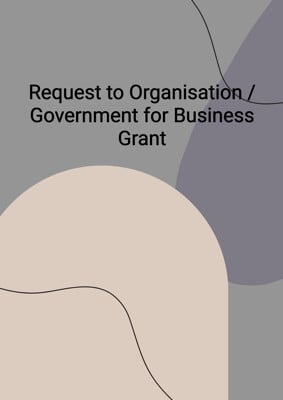How to Tailor the Document for Your Need?
01
Create Document
Fill in the details of the parties. You can click the "Fill with Member’s Information" button to complete it with information saved to your account.
02
Fill Information
Please fill in any additional information by following the step-by-step guide on the left hand side of the preview document and click the "Next" button.
03
Get Document
When you are done, click the "Get Document" button and you can download the document in Word or PDF format.
04
Review Document
The document should be signed by the authorised signatory (or directors of a company) and witnessed to complete the formality.
Document Preview
Document Description
A fundraising counsel agreement is a contract between a nonprofit organization and a professional fundraising consultant or firm (the "fundraising counsel") that provides strategic advice and guidance on fundraising efforts. Unlike a commercial fundraiser, who directly solicits donations, a fundraising counsel focuses primarily on providing expert advice, developing strategies, and offering support to help the nonprofit achieve its fundraising goals.
When to Use a Fundraising Counsel Agreement:
- Capital Campaigns: When your nonprofit is planning a major, long-term fundraising initiative, fundraising counsel can help with strategy, feasibility studies, and implementation.
- Strategic Planning: If your nonprofit needs a comprehensive fundraising strategy, an expert can help guide the organization through the planning and execution phases.
- Donor Cultivation: If you want to develop a more structured approach to major donor cultivation or enhance your donor retention, fundraising counsel can offer insights and strategies.
- Training: A nonprofit that wants to build internal capacity for fundraising may hire counsel to train staff or volunteers on effective techniques.
Key Elements of a Fundraising Counsel Agreement:
-
Scope of Services:
- This section details the specific services the fundraising counsel will provide. Services typically include:
- Developing fundraising strategies and plans (e.g., capital campaigns, annual giving programs).
- Offering guidance on donor cultivation and stewardship.
- Assisting with grant writing, major donor solicitation, or corporate sponsorships.
- Providing training to staff or volunteers on fundraising techniques.
- Advising on public relations, communications, and marketing strategies related to fundraising.
- Conducting feasibility studies for large fundraising campaigns.
- This section details the specific services the fundraising counsel will provide. Services typically include:
-
Duration of the Agreement:
- The agreement will specify the length of time the fundraising counsel will work with the nonprofit. This could be a short-term engagement (e.g., a few months for a specific project) or a longer-term contract (e.g., ongoing consultation over multiple years).
-
Compensation and Fee Structure:
- The fee arrangement for fundraising counsel is typically based on an hourly rate, a flat fee for a specific service or project, or a retainer for ongoing services.
- Some agreements may also include performance-based compensation, such as a percentage of funds raised, although this is less common and can raise ethical concerns.
- The agreement should also cover reimbursement for any out-of-pocket expenses incurred by the fundraising counsel (e.g., travel costs, marketing materials).
-
Roles and Responsibilities:
- The agreement will clarify the specific responsibilities of both parties, including the nonprofit’s obligations (e.g., providing data, access to key stakeholders, or resources) and the counsel’s responsibilities (e.g., providing deliverables on time and in a professional manner).
-
Confidentiality:
- As fundraising counsel will often have access to sensitive donor information and strategic plans, the agreement should include confidentiality provisions to protect the nonprofit's proprietary information and donor privacy.
-
Compliance:
- The agreement will often require the fundraising counsel to comply with relevant laws and regulations governing nonprofit fundraising. This includes ensuring that all activities align with ethical standards and legal requirements (e.g., IRS rules for charitable solicitations).
-
Conflict of Interest:
- The agreement may include a clause to ensure that the fundraising counsel has no conflicts of interest with other clients, especially clients in the same sector or with similar donor bases.
-
Deliverables and Reporting:
- The agreement should define the specific deliverables (e.g., fundraising plan, donor analysis report, strategic recommendations) and the timeline for delivering those items. It may also outline expectations for periodic progress reports to keep the nonprofit informed of the counsel’s work.
-
Termination Clause:
- This section outlines the conditions under which either party can terminate the agreement, whether for cause (e.g., failure to meet objectives, breach of contract) or without cause (e.g., after a specific period of time or upon completion of a project).
-
Dispute Resolution:
- In case of disagreements, the agreement may include a clause for resolving disputes, whether through mediation, arbitration, or litigation.
How to use this document?
To use this document effectively, follow these steps:
1. Provide the required information: Enter the names and addresses of the Client and the Counsel, ensuring that the information is accurate and up to date.
2. Understand the provisions: Familiarize yourself with the definitions and interpretations provided in the document to ensure a clear understanding of the terms used throughout the agreement.
3. Execute the Agreement: Sign and deliver the document promptly, ensuring that it is properly executed and delivered.
4. Comply with obligations and undertakings: Fulfill all obligations and undertakings outlined in the document, including the payment of expenses and the prompt payment of calls and payments due in respect of the security shares.
5. Seek legal advice if needed: If you have any questions or concerns about the document or its implications, consult with a legal professional to ensure that you fully understand your rights and obligations.
By following these steps and ensuring compliance with the terms of the document, you can effectively use the pledge agreement to establish a legally binding donation for the fundraising of your organisation.
Not the right document?
Don’t worry, we have thousands of documents for you to choose from:










